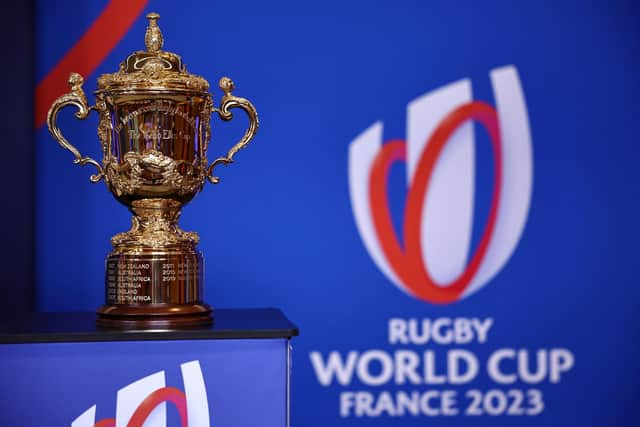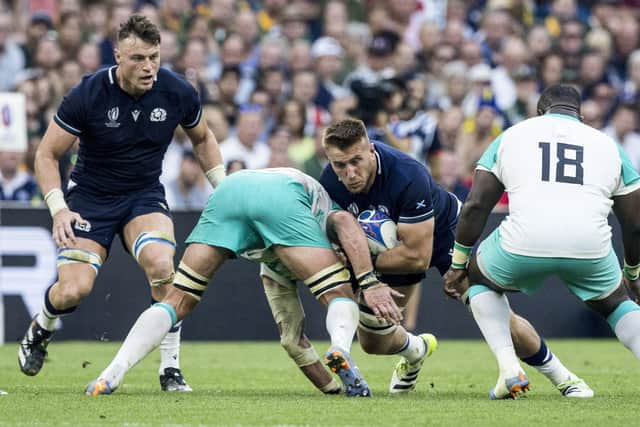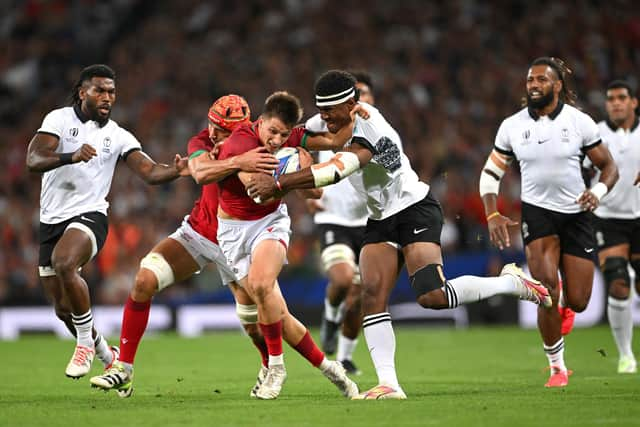Rugby World Cup changes: Expansion for 2027, new Nations League, draw date what it means for Scotland
World Rugby announced the expansion plans on Tuesday and it means the 2027 competition in Australia will feature an extra knockout round but one fewer pool stage fixture.
The game’s governing body also revealed that the draw for the next World Cup will be held “as late as possible”. This follows a deluge of criticism over its decision to hold the draw for the 2023 tournament almost three years in advance. Such was the shift in world rankings in the ensuing period that this year’s World Cup had a very lopsided look to it, with three of the world’s top five – Ireland, South Africa and Scotland – lumped together in Pool B. The other two from the top five – France and New Zealand – were in Pool A, meaning the top half of the draw was far stronger than the bottom.
Advertisement
Hide AdAdvertisement
Hide AdThe World Rugby Council appears to have taken the negative feedback on board and has come up with what it describes as a “historic reimagination of the competition format, window and timing”.


The next Rugby World Cup will be the biggest in the competition’s history but will also be played over a shorter period of time than this year’s, which should help maintain momentum. Some teams, such as Scotland, went a fortnight between games during the pool stage last month, leading to a perceived drop-off in interest. The long gaps were due to there being five teams in each group and the desire to give all sides an equal chance to recover between games.
The new format will see the 24 nations drawn into six pools of four, with the even numbers in each group meaning all teams will be active on each match weekend. The top two in each group along with the four best third-placed teams will qualify for the last 16, an extra round added to accommodate the expansion. It should mean Scotland having a better chances of escaping the pool stage, something they have failed to do in the last two World Cups.
The main beneficiaries of the bigger tournament will be the so-called Tier 2 nations, some of whom made such a positive contribution to this year’s World Cup, with Fiji reaching the quarter-finals and Portugal notching their first ever win at this level. The next tournament will be the 11th edition of the men’s elite event and will be played across six weeks from October 1 to November 13, 2027. Having more teams involved but in a more condensed format was hailed as a logistical triumph by World Rugby.
“The new format will feature six pools of four teams, with a round of 16 added prior to the quarter-finals,” it said. “This will enable the tournament window to be reduced from seven to six weeks, while promoting a rhythm that builds momentum across the pool phase and respects the same minimum number of rest days between matches as at France 2023.”


The six-week (seven-weekend) format will see the pool phase reduced from five to four weeks. Details of the qualification process for 2027 will not be announced until a full review of France 2023 and consultation with unions and regions. World Rugby added in a statement: “The Council also supported World Rugby’s desire to undertake the Pool Draw as late as possible to best reflect global competitiveness. This has been made possible by reform of the hosting model in May 2022, which sees World Rugby take greater control of key decisions and more financial risk.”
Sir Bill Beaumont, the chairman of World Rugby, said the expansion was necessary to grow rugby. “If we are to become a truly global sport, we must create greater relevance, opportunity and competitiveness to attract new fans and grow value,” he said. “This incredible Rugby World Cup 2023 tournament has demonstrated the passion and potential that lies beyond the top 10 or 12 nations, if we think big and think inclusive. It is not acceptable to accept the status quo. Not acceptable to do nothing. The decision to expand Rugby World Cup 2027 to 24 teams is logical and the right thing to do. Underpinned by a new global calendar that increases certainty and opportunity, we are focused on raising standards, closing the gaps and creating a spectacle that fans demand to see. With its love of sport and major events, Australia is the perfect place to do just that.”
The new global calendar for the men’s and women’s games includes the new biennial Nations League, which will begin in 2026 and feature a top division of 12 men’s teams. It will have promotion and relegation, but only from 2030.
Advertisement
Hide AdAdvertisement
Hide AdThe Nations League format has yet to be revealed but the top division will comprise sides from the Six Nations and Rugby Championship, and reportedly Japan and Fiji. They will meet every two years in the July and November international windows, replacing the traditional summer tours and autumn Tests. The Nations League will be held in the years when there is no World Cup or Lions tour.


There was almost immediate criticism of the initial ‘closed shop’ nature of the Nations League as supporters of smaller nations demanded to know why the promotion-relegation element would not be introduced until 2030.
